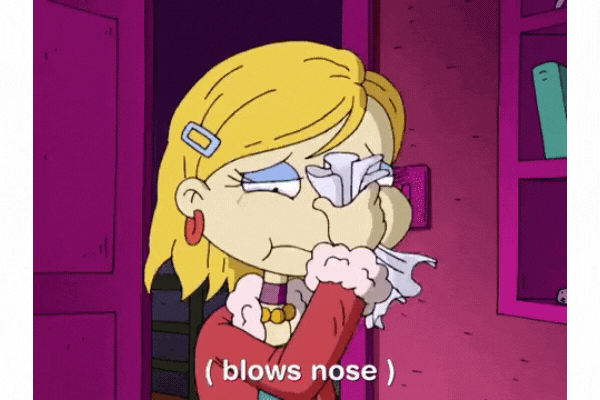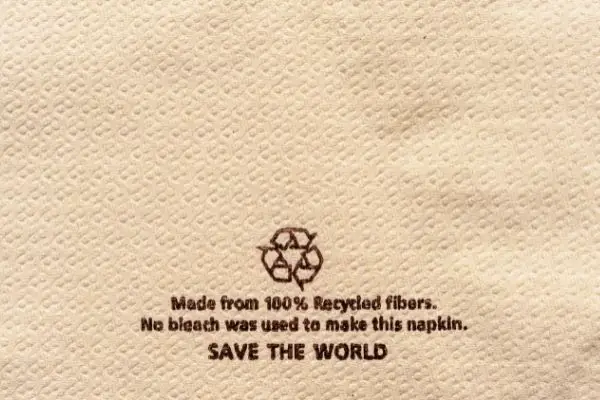Are Tissues Compostable? | The Best Way To ‘Dispose’ Used Tissues
Facial tissues are one of those household goods you don’t realize the importance of until you’ve run out. (We’ve all had to make do with a paper towel or wad of toilet paper in a pinch!)
Unfortunately, tissues are also an example of a single-use paper product. Once you’ve blown your nose or wiped away tears, there’s a good chance that tissue is going to be relegated to the trash.
Switching to reusable handkerchiefs is one way to minimize your family’s paper waste. If you’re not quite ready to give up tissues just yet, consider opting for a more sustainable disposal method instead.
Tissues are compostable! But think twice before composting used tissues covered in snot or other bodily fluids.

Are Tissues Compostable?
Yes! Tissues themselves are safe to compost at home.
The best way to compost tissues is by ripping them up into smaller pieces. This makes it easier to distribute the material throughout the compost without clumps forming.
Tissues are carbon-rich and should be balanced out by “green” materials like old salad greens, freshly cut grass, and pulled garden weeds.
Can You Compost Used Tissues?
Maybe! It all depends on how they’ve been used.
Tissues that have been used to clean up water or food spills are typically safe to compost. There is an exception, however, for tissues that have come into contact with non-compostable foods like meat and dairy.
On the other hand, tissues that have been used to clean up biological waste are not recommended for the compost pile.
Is It Safe To Compost Snotty Tissues?
At-home compost systems may not reach the temperatures needed to kill harmful germs and viruses.
That doesn’t mean you can never compost snotty tissues. But you must do so at your own risk.

First, you should not compost tissues containing biological waste if you plan to use the finished compost to fertilize a food garden. Doing so only increases the risk of spreading disease.
Avoid composting tissues contaminated with high-risk waste like feces or blood. Substances like mucus, saliva, and tears are relatively low-risk.
Should You Compost Used Tissues When You’re Sick?
Tissues that have come into contact with snot or other bodily fluids shouldn’t be composted at home if the user is sick.
With that said, don’t panic if you accidentally composted a snotty tissue while you have a common cold or another mild ailment. While you should do your best to avoid it, there’s no need to burn down your compost pile because of it!
Used tissues — yes, even those contaminated by bodily waste — can be processed by many industrial composters.
If your municipality has a pick-up or drop-off composting program, there’s a very good chance used tissues are accepted. Just be sure to double-check before adding them to your outgoing compost bin!
Is It Better To Recycle Or Compost Tissues?
There’s actually no need to weigh the pros and cons of recycling vs. composting at all!
Why? Well, tissues can’t be recycled. And, no, it doesn’t matter if the tissues have been used or not.

Tissues are often made using very short, recycled paper fibers and are not suitable for recycling into new material. The fibers used to make tissues are already at the very end of their lifespans.
So instead of saving your old tissues for the recycling bin, consider adding them to your backyard compost instead.
Frequently Asked Questions
Can you compost scented tissues?
Staying away from scented tissue products is a good idea, especially if you have sensitive skin or allergies. But using scented tissues probably won’t affect your ability to compost them.
Keep in mind that scented products may attract pests to your compost pile. However, scented tissues — at least in moderation — shouldn’t do any harm to the compost itself.
Can you add used tissues to Bokashi?
Yes! Actually, a Bokashi bin is a very effective and safe way to dispose of soiled tissues.
Although traditional compost isn’t guaranteed to kill off harmful pathogens, the environment inside a Bokashi bin is a different story. The heat and natural fermentation that make Bokashi possible will remove most harmful bacteria.
Be careful not to overload your Bokashi bin with used tissues!
Maintain a balance of food scraps to maintain a healthy decomposing environment. And don’t hesitate to add more Bokashi accelerator if needed.
Is tissue paper recyclable or compostable?
Tissue paper is another common source of waste, especially around birthdays and the holiday season! But, like facial tissue, tissue paper’s short fibers mean that it cannot be recycled.
Good news: Tissue paper is just as compostable as any other type of tissue. And, since tissue paper very rarely comes into contact with non-compostable substances, there’s no need to worry about keeping track of what is safe to compost and what is not.
Compost tissue paper as you would unused facial tissues. Rip the paper into smaller pieces to speed up decomposition and avoid weighing down your compost pile.





